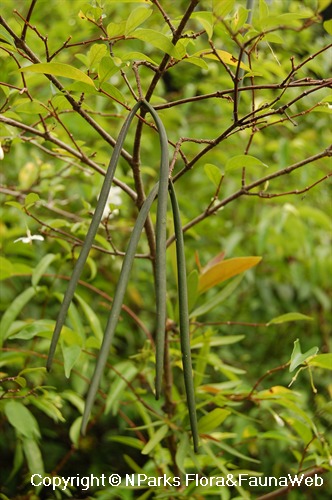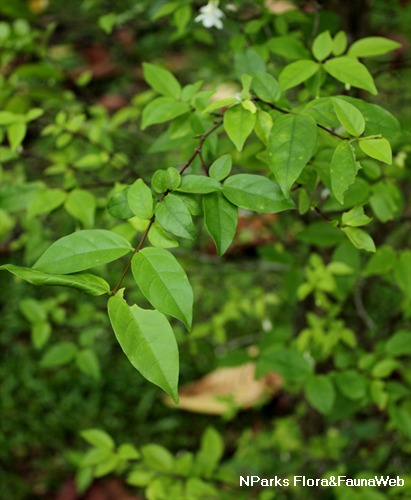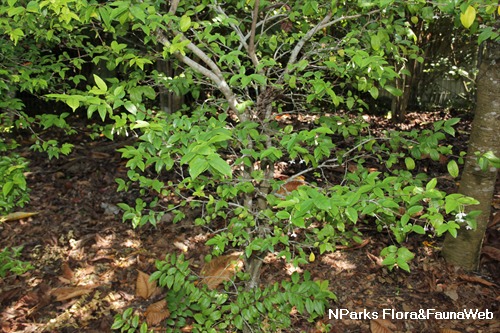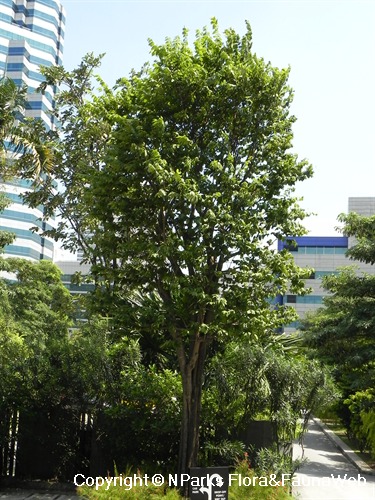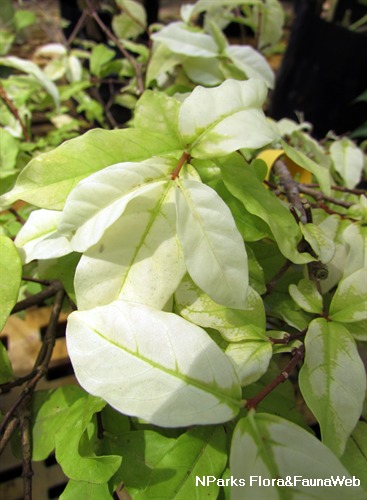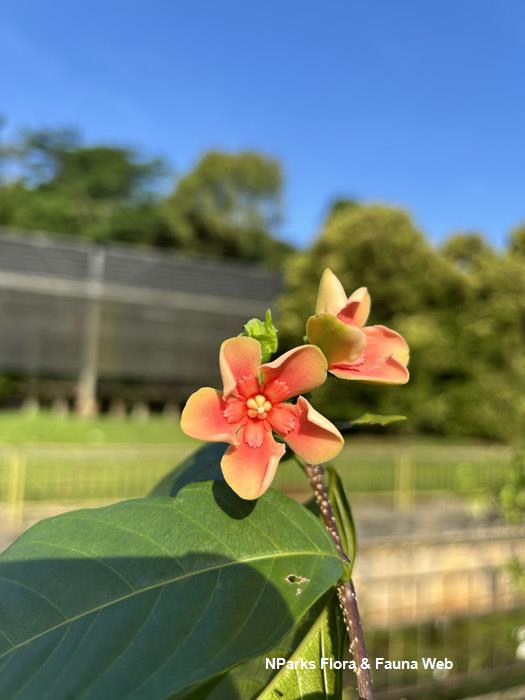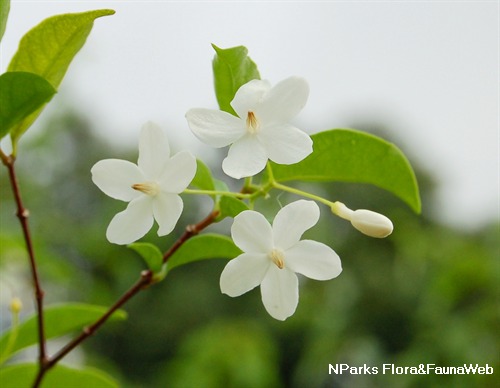
Back
Wrightia religiosa (Teijsm. & Binn.) Kurz
| Family Name: | Apocynaceae |
| Synonyms: | Echites religiosus |
| Common Name: | Wild Water Plum, Water Jasmine, Sacred Buddhist, 水梅 |
Name
Classifications and Characteristics
| Plant Growth Form | Shrub |
|---|---|
| Lifespan (in Singapore) | Perennial |
| Mode of Nutrition | Autotrophic |
Biogeography
| Native Distribution | Thailand & Malaysia |
|---|---|
| Native Habitat | Terrestrial |
| Preferred Climate Zone | Tropical |
Description and Ethnobotany
| Growth Form | Shrub having an approximately flat top and grows up to 2 m tall. |
|---|---|
| Foliage | Thin, smooth leaves are light green, oval and have smooth edges (entire leaf margin). They are arranged in pairs (opposite) and lack petioles (sessile). |
| Flowers | Intensely fragrant, white flowers are composed of 5 obovate petals arranged in a star-like pattern. The black tipped stamens are fused together at the tip in a column. The flowers are arranged in small clusters in the leaf axils. This species flowers frequently throughout the year. |
| Etymology | Genus Wrightia is named after Dr William Wright (1740 - 1827), who was a Scottish physician and botanist and who also identified the indigenous Jamaican species, Cinchona jamaicensis, in 1777. Species religiosa means sacred and of religious rites. |
| Ethnobotanical Uses | Cultural / Religious: In Thailand, Buddhist monks often plant this species near their temples. |
Landscaping Features
| Desirable Plant Features | Fragrant (Flowers) (Day), Ornamental Flowers |
|---|---|
| Landscape Uses | Suitable for Bonsai, Flowerbed / Border, Parks & Gardens, Small Gardens, Skyrise / Balcony |
| Thematic Landscaping | Fragrant / Aromatherapy Garden |
Plant Care and Propagation
| Light Preference | Semi-Shade, Full Sun |
|---|---|
| Water Preference | Moderate Water |
| Rootzone Tolerance | Moist Soils, Well-Drained Soils |
| Propagation Method | Stem Cutting, Root Cutting |
Foliar
| Foliage Retention | Evergreen |
|---|---|
| Mature Foliage Colour(s) | Green |
| Mature Foliage Texture(s) | Smooth |
| Foliar Type | Simple / Unifoliate |
| Foliar Arrangement Along Stem | Opposite |
| Foliar Attachment to Stem | Sessile |
| Foliar Shape(s) | Non-Palm Foliage (Oval) |
| Foliar Venation | Pinnate / Net |
| Foliar Margin | Entire |
| Foliar Apex - Tip | Acute |
| Foliar Base | Acute |
| Leaf Area Index (LAI) for Green Plot Ratio | 4.5 (Shrub & Groundcover - Dicot) |
Floral (Angiosperm)
| Flower & Plant Sexuality | Bisexual Flowers |
| Flower Colour(s) | White |
|---|---|
| Flower Grouping | Cluster / Inflorescence |
| Flower Symmetry | Bilateral |
| Flowering Period | Free-Flowering |
Fruit, Seed and Spore
| Mature Fruit Colour(s) | Green |
|---|---|
| Fruit Classification | Simple Fruit |
Image Repository
Others
| Master ID | 1263 |
|---|---|
| Species ID | 2556 |
| Flora Disclaimer | The information in this website has been compiled from reliable sources, such as reference works on medicinal plants. It is not a substitute for medical advice or treatment and NParks does not purport to provide any medical advice. Readers should always consult his/her physician before using or consuming a plant for medicinal purposes. |

